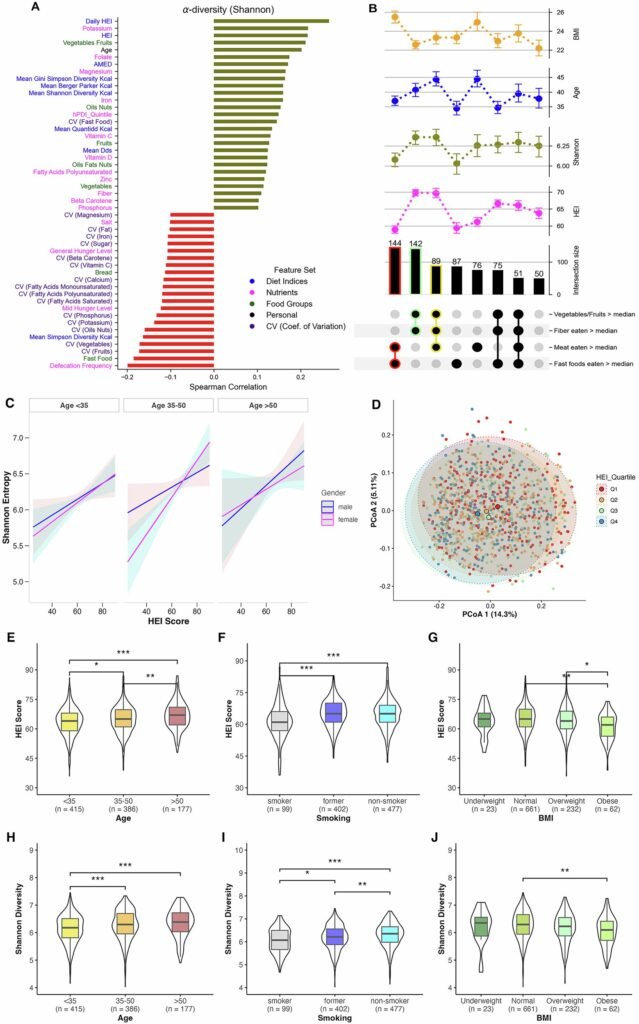In a groundbreaking study utilizing AI and machine learning, researchers at EPFL have uncovered a pivotal factor in gut health—it’s not just about what we eat, but how consistently we eat it that makes a difference.
The gut microbiota, a complex ecosystem of microorganisms residing in our digestive systems, consists of beneficial and harmful microbes. Previous research has highlighted the impact of diet on gut microbiota, with healthy diets rich in fruits, vegetables, fiber, and nuts promoting microbial diversity and overall stomach health.
However, EPFL’s latest research, published in the prestigious journal Nature Communications, reveals a new dimension to the equation. It’s not only the content of our diet that matters, but also the regularity of consumption. The study, conducted in collaboration with the University of California, San Diego, demonstrated that eating a healthy diet consistently is as crucial as the quantity consumed.
Associate Professor Marcel Salathé, head of the Digital Epidemiology Lab at EPFL, emphasized the significance of this finding, stating that irregular consumption of healthy foods can negate their beneficial effects on gut microbiota. The study challenges conventional wisdom and underscores the importance of sustained healthy eating habits.
Moreover, the research team discovered a remarkable correlation between a person’s gut bacteria and their dietary choices, with up to 85% accuracy. Advanced machine learning techniques enabled the prediction of an individual’s diet based on their microbiota and vice versa, showcasing the potential of real-time data analysis in understanding dietary patterns.
The study leveraged detailed nutritional data from the “Food & You” cohort, collected through the AI-powered MyFoodRepo app developed by the EPFL lab. This innovative tool allowed users to log their meals in real-time, providing valuable insights into nutritional content. The app’s AI algorithms facilitated large-scale data collection, revolutionizing nutrition research practices.
Looking ahead, the study’s findings suggest a need to update current dietary guidelines to emphasize not just the types and quantities of food, but also the consistency of healthy eating behaviors. The researchers continue to explore the app’s potential for other studies, including investigations into the link between food additives and gut microbiota.
Overall, the MyFoodRepo app is poised to revolutionize nutrition studies globally, offering a user-friendly platform for collecting essential dietary data. The EPFL team’s pioneering research underscores the critical role of dietary regularity in maintaining gut health, paving the way for future advancements in personalized nutrition interventions.


